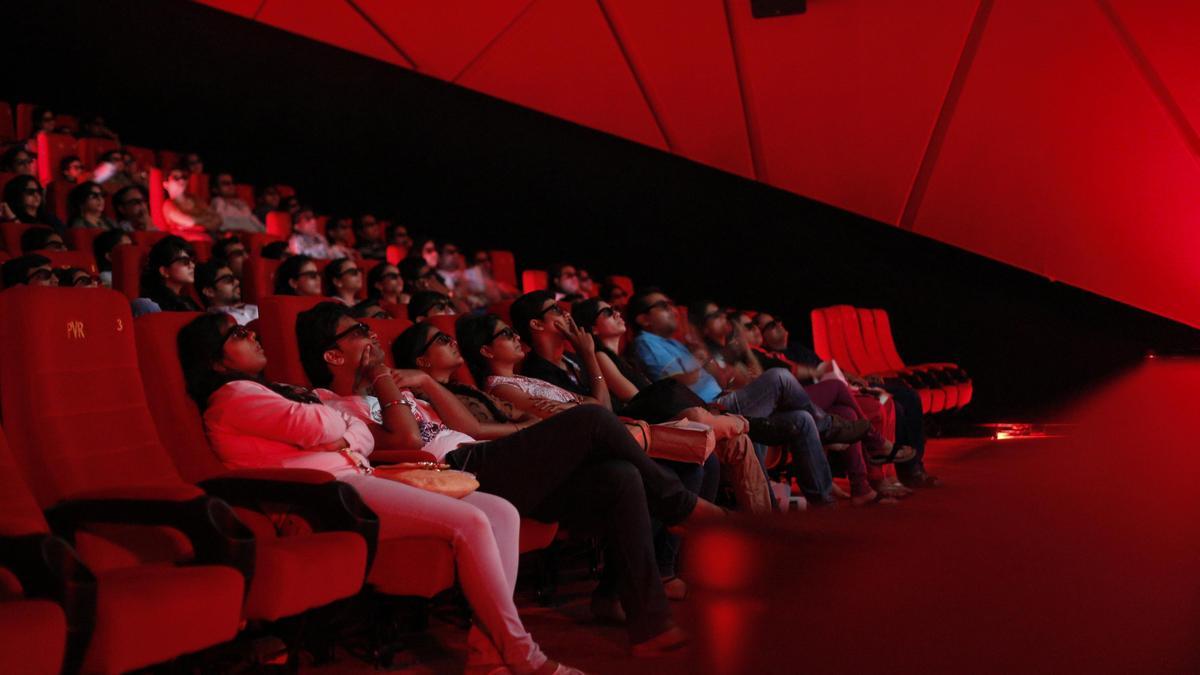
Booking movie tickets online has never been more expensive, with fees climbing upwards of 7% to 16% of a ticket’s original price levied as “internet handling fees” or other similarly worded additional charges. Notably, these fees apply across the board, including the cinema chains’ own booking platforms. For example, a typical weekday afternoon screening of the film Chandu Champion in Delhi can inflate a ₹490 ticket to ₹556.08 due to these added costs.
While the concept of convenience fees isn’t new, the justification for them in the online movie ticketing industry stands out. Typically, booking sites and intermediaries across various sectors charge what consumers are willing to pay, even surpassing the actual cost of service provision to ensure profitability, just as any profit-seeking enterprise would. However, what’s intriguing in this sector is the lack of necessary physical overheads that could justify these high fees. Unlike the food delivery or quick commerce industries that bear significant costs due to delivery agents and maintenance of dark stores, the movie ticketing domain incurs comparatively minimal investment.
This has resulted in an unusual phenomenon: a virtual duopoly dominated by BookMyShow and Paytm, creating a barrier that repels any outside competition. Despite the surge in cost-effective cloud and hosting solutions, electronic booking technology remains largely unchanged, failing to introduce meaningful innovations, save for ticket cancellation options that provide partial refunds to moviegoers who alter plans. This stagnation seems incongruent with the declining costs seen in other technology-dependent industries.
BookMyShow and Paytm hold sway over online movie ticketing through partnerships with multiplex chains and single-screen cinemas. Attempts to introduce competitors into this space have faced robust resistance. A prominent illustration of this is Hyderabad-based advocate Vijay Gopal’s efforts, which were stymied by exclusive partnerships and high convenience fees imposed by existing players. In 2022, Gopal sought intervention from the Competition Commission of India (CCI), alleging that BookMyShow’s exclusive arrangements elevated convenience prices for consumers and barred potential competitors.
BookMyShow, while not explicitly denying the exclusivity allegations, maintains that it operates within the legal frameworks and adheres to high standards of compliance. The firm asserts its willingness to cooperate with any regulatory inquiries.
. Meanwhile, two years after the CCI’s investigation order, the case shows no significant advancement, leaving questions about competitive fairness unresolved.
Interestingly, even when movie tickets are booked via multiplexes’ own websites, “internet handling fees” persist at comparable levels. Leading multiplex chains like PVR INOX and Cinépolis deliver digitally-purchased tickets without additional charges, suggesting that the imposition of such fees by online intermediaries isn’t solely based on the costs associated with digital ticket delivery.
Paytm has remained silent on queries regarding its ticketing business. However, Zomato Ltd. recently disclosed discussions to acquire Paytm’s movie ticketing division to bolster its “going out” vertical, hinting at potential market shifts.
Amid these dynamics, Gopal’s antitrust complaint underscores the anti-competitive environment. He alleges that BookMyShow colluded with cinemas, offering lock-in fees to prevent them from collaborating with competitors. Though BookMyShow’s response was not fully transparent due to redactions in the CCI’s publications, it admitted to sharing a portion of the convenience fee with cinema partners.
Tech policy analyst Bhoomika Agarwal cautions against hastily concluding collusion or exclusive agreements as the cause of high handling fees and limited market players. These assertions necessitate thorough examination and resolution by the CCI. Additionally, an unnamed executive from a different ticketing sector speculated that the consolidated multiplex industry likely extracts favorable financial terms from intermediaries like BookMyShow and Paytm, who in turn pass these costs onto consumers, thereby dissuading new entrants from challenging the status quo.
Potential changes may arise from the draft Digital Competition Bill (DCB), which aims to regulate online intermediation services, including ticketing platforms. While movie ticketing firms might not be deemed “systematically significant” due to their size, the qualitative impact of their operations could attract scrutiny under this bill. The DCB has encountered significant pushback from major tech platforms and is yet to be finalized.
In conclusion, the escalating costs of booking movie tickets online, driven by high “handling” fees and a market dominated by a few key players, highlights significant competitive barriers and regulatory gaps. As consumers bear the brunt of these practices, industry observers and regulators continue to scrutinize the landscape, seeking pathways to foster fair competition and innovation.












